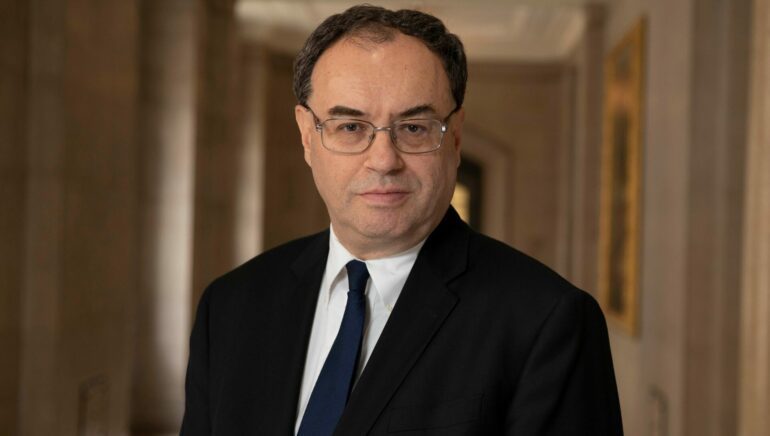Following the Bank of England’s (BoE) decision to hold the base rate at 5.25% for a fourth consecutive time, governor Andrew Bailey has defended the reserved fiscal approach.
Speaking at the Bank’s Monetary Policy Report Press Conference following the announcement today (1st February), Bailey said that despite “some good news over the past few months,” the Monetary Policy Committee (MPC) would remain cautious.
Explaining the decision, he said: “We are not yet in at the point where we can lower interest rates.
“Yes, we’ve had good news, but we have to be more confident that inflation will fall.”
This came as the Bank reaffirmed its commitment to lower inflation to its target of 2%.
With inflation now standing at 4%, down from a high of 10% last year, Bailey remained optimistic that the current “restrictive monetary policy stance is working to reduce domestic inflationary pressures.”
Citing price stability as the “foundation of a healthy economy,” Bailey shared the MPC’s projected outline for inflation over the coming months.
While the MPC reported that it expects the Consumer Price Index (CPI) to fall over the next few months, even potentially hitting the Bank’s target of 2% in the spring and early summer, Bailey was quick to point out the conditional nature of these projections.
“It’s not as simple as ‘inflation returns to target’ in the spring and the job is done,” he said.
“Looking ahead to the second half of the year, the negative contributions from energy prices are likely to fade […] and that in and of itself will push headline inflation back up somewhat.”
Bailey also emphasised the presence of external risks, such as international economic affairs and geopolitical turmoil, all of which could affect the bank’s somewhat positive inflation forecasts.
In light of this, he said: “We need to keep monetary policy sufficiently restrictive for a sufficient amount of time; nothing more, nothing less.”



